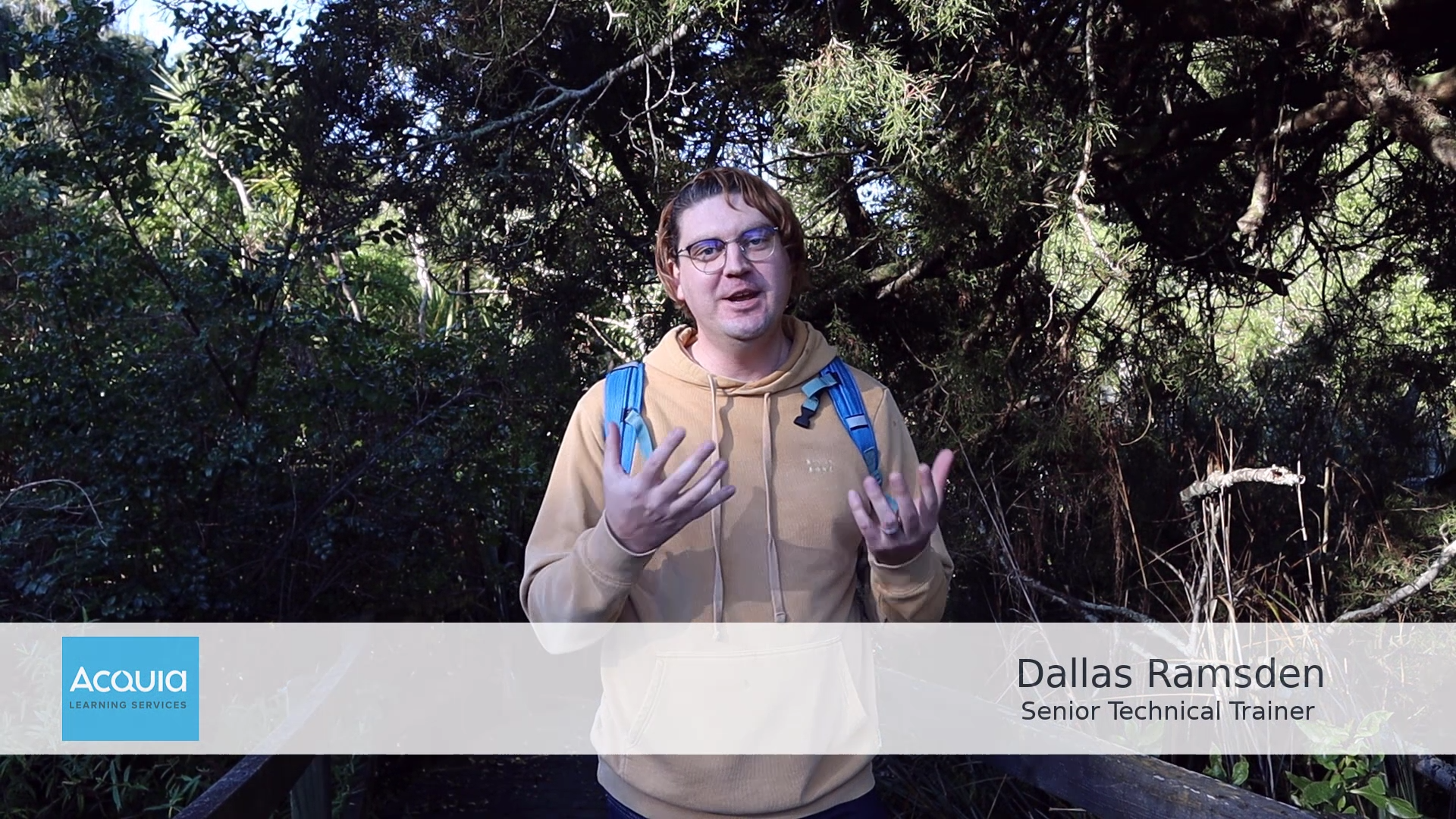Acquia's Drupal Module Development Course
I follow an "Eat that Frog!" mentality by focusing on tackling the most difficult task first. This is the first video course I developed while employed at Acquia.
Course specifics
This course is designed for people who want to learn how to add custom features to websites using a tool called Drupal. It's particularly focused on teaching how to build "modules", which are like little programs that add specific functions to a Drupal website. The course covers how these modules interact with Drupal's underlying framework and introduces programming techniques to create and manage these modules effectively.
Participants will learn through a mix of theoretical lessons and hands-on projects, making the course both challenging and enjoyable. They'll learn about the best practices for secure and efficient coding, and by the end, they should be able to customize a Drupal site far beyond basic setups. This course is ideal for those who have some experience with Drupal and basic programming knowledge but want to deepen their skills in creating more tailored and complex functionalities.
By the end of the training you will be able to:
- Understand why and how Drupal leverages the Symfony framework.
- Describe Drupal's hook system and development architecture.
- Articulate the construction of Drupal modules.
- Apply object-oriented programming concepts for Drupal.
- Insert and extract data using Drupal's core database abstraction layer.
- Understand Drupal’s Plugin system allowing you to create custom blocks, migrate plugins, field widgets and more.
- Work with dependency injection.
- Create custom services.
- Employ and articulate best practices, security techniques, conventions and coding standards.
- Drupal developers new to module development
- PHP developers new to Drupal
- Drupal 7 module developers eager to level up to the modern Drupal module development framework.
- Those undertaking migration of a Drupal 6 or Drupal 7 site into Drupal 9 or 10.
In order to get the most out of this course you should have prior experience in site building with Drupal.
Drupal-related site configuration: (i.e. Content creation and maintenance and/or Site building).
Familiarity with writing code in a text editor.
Programming experience with PHP is preferred, but any programming experience will be helpful.




